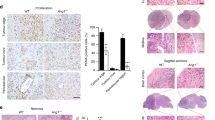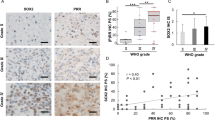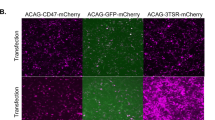Abstract
The cell surface urokinase-type plasminogen activator receptor (uPAR) has been shown to be a key molecule in regulating plasminogen-mediated extracellular proteolysis. To investigate the role of uPAR in invasion of brain tumors, human glioblastoma cell line SNB19 was stably transfected with a vector capable of expressing an antisense transcript complementary to the 300 base pair of the 5′ end of the uPAR mRNA. Parental and stably transfected (vector, sense, and antisense) cell lines were analysed for uPAR mRNA transcript by Northern blot analysis, and receptor protein levels were measured by radioreceptor assays and Western blotting. Significant reduction of uPAR sites was observed in the antisense transfected cell lines. The levels of uPAR mRNA were significantly decreased in antisense clones compared to control, vector and sense clones. The invasive potential of the cell lines in vitro was measured by Matrigel invasion assay and migration of cells from spheroids to monolayers. The antisense transfected cells showed a markedly lower level of invasion and migration than the controls. The antisense clones were more adhesive to the ECM components compared to parental, vector and sense clones. All transfected (vector, sense and antisense) clones and parental cells produced similar levels of uPA activity without any significant difference however, MMP-2 activity was decreased in antisense clones compared to controls. These results demonstrate that uPAR expression is critical for the invasiveness of human gliomas and down regulation of uPAR expression may be a feasible approach to decrease invasiveness.
This is a preview of subscription content, access via your institution
Access options
Subscribe to this journal
Receive 50 print issues and online access
$259.00 per year
only $5.18 per issue
Buy this article
- Purchase on Springer Link
- Instant access to full article PDF
Prices may be subject to local taxes which are calculated during checkout
Similar content being viewed by others
Author information
Authors and Affiliations
Rights and permissions
About this article
Cite this article
Mohanam, S., Chintala, S., Go, Y. et al. In vitro inhibition of human glioblastoma cell line invasiveness by antisense uPA receptor. Oncogene 14, 1351–1359 (1997). https://doi.org/10.1038/sj.onc.1200963
Received:
Revised:
Accepted:
Issue Date:
DOI: https://doi.org/10.1038/sj.onc.1200963
Keywords
This article is cited by
-
Systematic Review of Protein Biomarkers of Invasive Behavior in Glioblastoma
Molecular Neurobiology (2014)
-
Downregulation of uPARAP mediates cytoskeletal rearrangements and decreases invasion and migration properties in glioma cells
Journal of Neuro-Oncology (2011)
-
Inhibition of matrix degrading enzymes and invasion in human glioblastoma (U87MG) Cells by isoflavones
Journal of Neuro-Oncology (2006)
-
Downregulation of uPAR confirms link in growth and metastasis of osteosarcoma
Clinical & Experimental Metastasis (2005)
-
RNAi-mediated inhibition of cathepsin B and uPAR leads to decreased cell invasion, angiogenesis and tumor growth in gliomas
Oncogene (2004)



